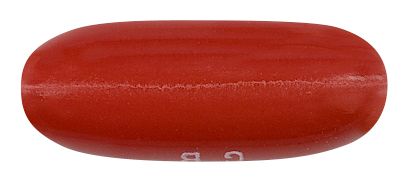Symmetrel TM
Listen to the Pronunciation:
You should seek medical advice in relation to medicines and use only as directed by a healthcare professional. Always read the label. If symptoms persist see your healthcare professional.
Active ingredients: amantadine
Pack: Symmetrel 100 mg capsule, 100, bottle
Brand name
(ARTG)
: SYMMETREL 100 amantadine hydrochloride 100mg capsule bottleConsumer Medicine Information (CMI)
Read the CMI leaflet for facts you need to know before, during and after taking your medicine.
Listen to the audio transcription of the CMI leaflet.
For more information about CMIs and how to read them, please visit How to read Consumer Medicine Information (CMI).
What this medicine is used for
(ARTG)
PARKINSON'S DISEASE: Idiopathic Parkinson's disease; post encephalitic parkinsonism; symptomatic parkinsonism (e.g. following CNS injury from carbon monoxide poisoning); arteriosclerotic parkinsonism; drug-induced extrapyramidal reactions. Symmetrel can be given alone for initial therapy or combined with anticholinergic drugs or L-dopa (see "Dosage and Administration"). Note: Symmetrel is not indicated for the treatment of tardive dyskinesia. TYPE A VIRUS INFLUENZA: Prophylaxis of respiratory tract illness caused by Influenza Type A. Prophylaxis in non-immunized individuals (including children) for whom influenza may have serious consequences (e.g. persons with chronic respiratory disease of diabetes mellitus).
How to use this medicine
(ARTG)
This medicine contains one component only.
Component :
- Capsule, soft
- Oral
- Reddish-brown, opaque, shiny, oblong capsule. One side branded "GEIGY", the other "GB", in white.
Images


Images © Medicines Information Pty Ltd.
Storage conditions
(ARTG)
- Store below 25 degrees Celsius
- Protect from Moisture
- Shelf lifetime is 3 Years.
Do I need a prescription ?
(ARTG)
These medicine packs are available from a pharmacist and requires a prescription. It is
- 100 pack
Is this medicine subsidised ?
(PBS)
This medicine was verified as being available on the PBS (Pharmaceutical Benefits Scheme) on January, 6 2026. To learn more about this subsidy, visit the Pharmaceutical Benefits Scheme (PBS) website.
Pregnant or planning a pregnancy ?
(AHT)
For the active ingredient amantadine
You should seek advice from your doctor or pharmacist about taking this medicine. They can help you balance the risks and the benefits of this medicine during pregnancy.
Reporting side effects
You can help ensure medicines are safe by reporting the side effects you experience.
You can report side effects to your doctor, or directly at www.tga.gov.au/reporting-problems









